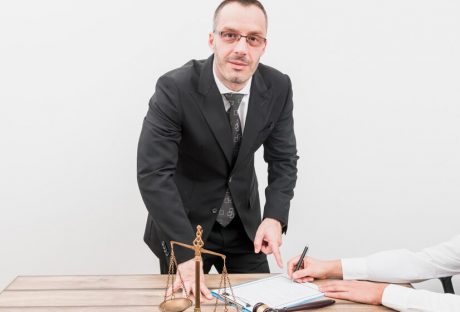As an individual living with a disability, your quality of life depends on having access to appropriate support systems. One such program in Australia is the National Disability Insurance Scheme (NDIS). This guide offers assistance in navigating and optimising NDIS in Parramatta, New South Wales, by providing more clarity around its benefits that best suit you.
Understanding The NDIS
What Is The NDIS?
The NDIS is an innovative social welfare initiative launched by the Australian government that seeks to offer new approaches to providing services and support for those with disabilities. Its primary aim is to enhance both disabled individuals’ lives as well as caregivers’ by offering access to necessary services, tailored support plans and social and economic inclusion initiatives.
Who Is Eligible For The NDIS?
Generally, the NDIS is accessible to individuals who:
- Are Australian citizens, permanent visa holders, or New Zealand citizens holding a Protected Special Category Visa?
- Are aged between 7 and 65 years.
- Live in an NDIS-accessible area.
- Have a permanent or significant disability affecting their ability to participate in everyday activities.
What Support Does The NDIS Provide?
The National Disability Insurance Scheme (NDIS) offers various supports and services across multiple categories, including core, capacity building, and capital support. Daily activities may be assisted through core supports; capacity building supports help build skills and independence; capital supports may include assistive technologies or home modifications.
Navigating The NDIS In Parramatta
Starting Your NDIS Journey
Understanding the application process is the first step to successfully navigating the NDIS. This typically involves four steps:
- Check Eligibility: Use the NDIS eligibility checklist to ascertain your qualification for the scheme.
- Make an Access Request: This can be done over the phone or by completing an Access Request Form, providing relevant information about your circumstances and disability.
- Development of Your NDIS Plan: If your access request is accepted, a meeting will be scheduled with an NDIS representative to create your personalized NDIS plan, discussing your needs, goals, and supports.
- Implementing Your NDIS Plan: Once approved, you will start accessing the supports and services outlined in it.
Developing Your NDIS Plan
Your NDIS plan is your blueprint for your support system. It outlines your goals, needs, and the support required to help achieve those goals. A well-crafted NDIS plan should reflect your aspirations, and it’s crucial to prepare thoroughly for your planning meeting.
Here are a few steps to ensure a productive planning meeting:
- Outline Your Goals: These should be specific, measurable, achievable, realistic, and time-bound (SMART).
- Identify Your Needs: Evaluate your day-to-day needs, considering the necessary support to live comfortably and safely. This could include personal care, transportation, assistive technology, therapy services, etc.
- Prepare a Support Team: The team could comprise therapists, doctors, caregivers, or family members who understand your needs and can provide valuable input during the planning meeting.
- Document Everything: Having written documentation about your disability, daily routine, goals, and conditions can help make your case during the planning meeting.
Managing Your NDIS Plan
Once your NDIS plan is approved, the next critical step is managing it. There are three management options:
- NDIS-Managed: The NDIS contains the funding, paying providers directly.
- Plan-Managed: A plan manager, paid for by the NDIS, works the financing, allowing for flexibility in choosing both registered and unregistered service providers.
- Self-Managed: You (or your nominee) manage the funding, which involves more responsibility but offers excellent choice and control.
Engaging With NDIS Service Providers
Choosing The Right Service Providers
Choosing the right service providers is vital to ensuring your needs are met. Here are a few considerations when selecting your service provider:
- Skills and Expertise: The provider should have the necessary skills and expertise to meet your needs.
- Flexibility: Look for flexible providers regarding how, when, and where they provide services.
- Cultural Fit: The provider should respect your cultural background, values, and beliefs.
- Communication: They should be able to communicate effectively and transparently, keeping you informed about all aspects of your support.
Building An Effective Relationship With Service Providers
Establishing an effective partnership with your service provider is vital to realizing the maximum benefit from your NDIS plan. Maintaining open lines of communication, setting clear expectations, and receiving timely feedback are keys to building an enduring partnership.
Continuous Improvement And Review
Regular Review Of Your NDIS Plan
Your NDIS plan should be reviewed regularly to meet your ever-evolving needs. Typically this occurs annually, but earlier reviews can be requested in cases of significant changes in your situation.
Continuous Improvement Of Your NDIS Journey
Your NDIS plan should be reviewed regularly to meet your ever-evolving needs. Typically this occurs annually, but earlier reviews can be requested in cases of significant changes in your situation.
Conclusion
Navigating the NDIS in Parramatta may seem complex and intimidating initially, but proper understanding and approach can open doors to improved support and enhanced quality of life. Remember, the NDIS exists to help people reach their full potential and live an empowered life – so be proactive, informed, and assertive on your journey through it, and you’ll make the most of this invaluable resource.
Read Also:
- How To Replace Your Social Security Card Online
- Why DRM Is the New Standard for Document Security
- “Which Backend keys makes Social Networking Sites & Apps works smoothly?
























